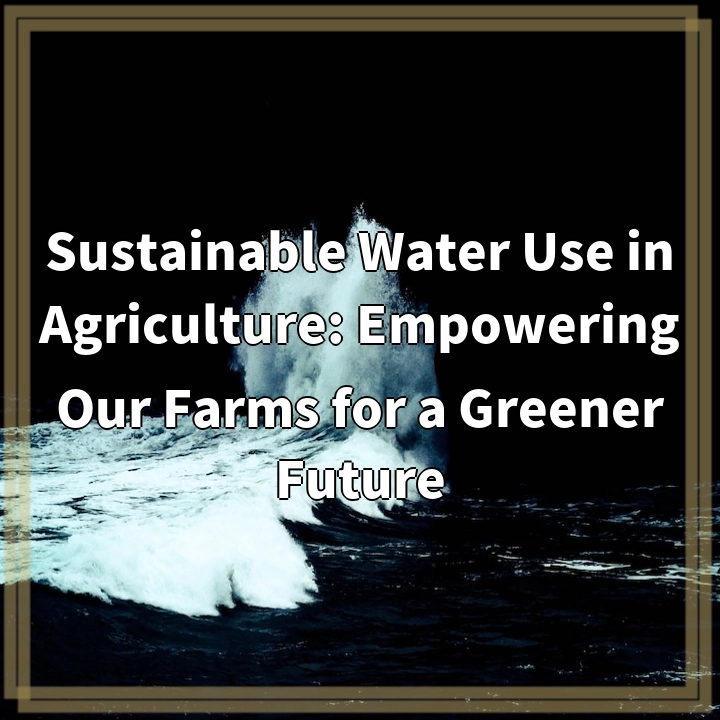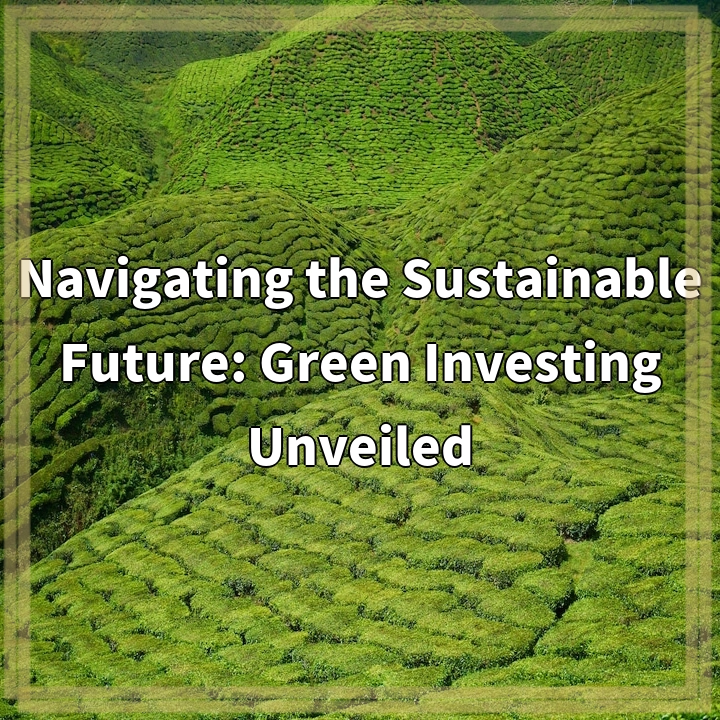
What is Sustainable Water Use in Agriculture?
Sustainable water use in agriculture refers to the practice of managing water resources in a way that minimizes negative impacts on the environment while maintaining productive and efficient farming operations. It involves implementing strategies and techniques that aim to conserve water, optimize irrigation practices, and protect water quality. The goal is to strike a balance between agricultural productivity and the long-term sustainability of water resources.
Real-World Problems Associated with Sustainable Water Use in Agriculture
Despite the importance of sustainable water use in agriculture, there are significant challenges and obstacles that need to be addressed. Some of the key real-world problems include:
1. Water Scarcity
Rising global populations and increased water demand pose a challenge to agricultural water use. Many regions already face water scarcity, and as climate change alters precipitation patterns, water availability becomes even more unpredictable. This scarcity puts pressure on farmers to find efficient and sustainable ways to manage their water resources.
2. Inefficient Irrigation Practices
Traditional irrigation methods, such as flood irrigation, are often inefficient and result in significant water losses due to evaporation, runoff, and deep percolation. These practices not only waste water but also contribute to soil salinization and water pollution. It is essential to promote and adopt modern irrigation technologies, such as drip irrigation and precision irrigation systems, to reduce water waste and increase water use efficiency.
3. Water Quality Degradation
Intensive agricultural practices, such as the excessive use of fertilizers and pesticides, can lead to water pollution. Runoff from agricultural fields can carry sediment, nutrients, and harmful chemicals into nearby water bodies, endangering aquatic ecosystems and human health. Ensuring sustainable water use in agriculture involves minimizing the negative impacts of agricultural activities on water quality through responsible nutrient management and the use of eco-friendly farming practices.
4. Lack of Access to Water for Small-Scale Farmers
In many regions, small-scale farmers face challenges in accessing water resources for their agricultural activities. Limited infrastructure, the privatization of water resources, and water rights issues can disproportionately affect small-scale farmers, exacerbating inequality and hindering their ability to adopt sustainable water use practices.
5. Education and Awareness
Educating farmers about the importance of sustainable water use practices and providing them with the necessary knowledge and skills is crucial. Lack of awareness and understanding of sustainable water management techniques can hinder the widespread adoption of these practices. Efforts must be made to promote training programs, workshops, and outreach initiatives to empower farmers with the necessary tools to implement sustainable water use in agriculture.

Solutions for Sustainable Water Use in Agriculture
Addressing the real-world problems associated with sustainable water use in agriculture requires a multi-faceted approach that combines innovative strategies, technology, and collaborations. Here are some potential solutions:
1. Water-efficient Irrigation Techniques
Adopting efficient irrigation methods such as drip irrigation, micro-sprinklers, and precision irrigation systems can significantly reduce water wastage by delivering water directly to plant roots and minimizing evaporation and runoff.
2. Crop Selection and Crop Rotation
Choosing crops that are well-suited to the local climate and soil conditions can help optimize water use. Crop rotation practices can also help improve soil health, reduce water requirements, and mitigate the risk of pests and diseases.
3. Water Harvesting and Conservation Techniques
Implementing water harvesting techniques, such as collecting rainwater or using water storage tanks, can help supplement irrigation needs during dry periods. Conservation practices such as mulching, soil moisture monitoring, and using cover crops can also help retain moisture in the soil and reduce water loss through evaporation.
4. Precision Farming Technologies
Utilizing precision farming technologies, including sensors, drones, and data analytics, can optimize water use by providing real-time information about crop water requirements, soil moisture levels, and irrigation needs. This allows farmers to make data-driven decisions and apply water resources more efficiently.
5. Integrated Water Management and Collaboration
Effective water management requires collaboration among farmers, government agencies, water authorities, and other stakeholders. Establishing water management plans, promoting water-saving partnerships, and implementing water allocation systems can help ensure equitable and sustainable water use in agriculture.
6. Farmer Education and Support
Providing education and support to farmers is crucial for promoting sustainable water use practices. Training programs, workshops, and extension services can help educate farmers about sustainable irrigation techniques, soil conservation, nutrient management, and the importance of water quality protection.















